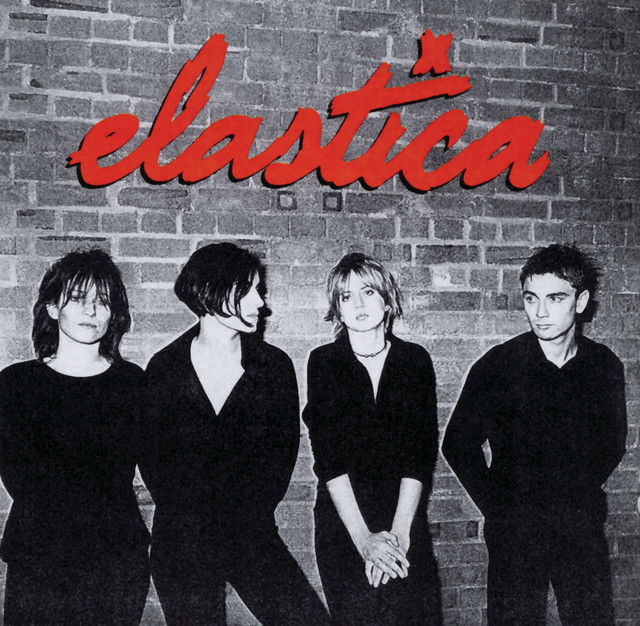Song Stories: Elastica: Never Here
Elastica play a huge part within the Britpop story. Led by Justine Frischmann, who was one of the most important members of the Britpop circle, both due to her musical ability and her high profile relationships with Brett Anderson of Suede and Damon Albarn of Blur. Frischmann and Anderson had been two of the founding members of Suede, but due to personal and creative differences Frischmann left Suede and Anderson and would form Elastica.
Elastica were one of the most exciting bands of the era, and were a far cry from what Suede were, the had more in common with Wire and The Stranglers than they did with The Smiths. Their songs were short punchy tracks with infectious hooks and snappy lyrics.
The bands debut album became the fastest-selling debut album in UK history at the time. Knocking ''Definitely Maybe' off this perch. While the album is best known for tracks like ‘Connection,’ ‘Stutter,’ and ‘Waking Up,’ it also contains deeper, more introspective moments, none more poignant than ‘Never Here.’

'Never Here' is the albums longest song and is often interpreted at how Frischmann was feeling about her breakup with Anderson. It's easy to see why people think that.
The song captures the emotional aftermath of a deteriorating relationship, where communication has broken down and resentment lingers. The opening lines set the tone:
“We were sitting in waiting / And I told you my plan / You were far too busy writing / Words that didn’t scan.”
These lyrics suggest a disconnect, possibly referencing Anderson’s songwriting and hinting at the creative and personal differences that led to their split. Frischmann delivers the words in her signature detached, almost spoken-word style, which only amplifies the song’s feelings of frustration and disappointment. ‘Never Here’ doesn’t just express sadness; it also carries a sense of bitter irony, as if looking back on a relationship that was doomed to fail. The repetition of “You were never here” reinforces the idea of emotional absence and neglect, further driving home the song’s themes.
Musically, ‘Never Here’ takes a different approach from the rest of ‘Elastica.’ While much of the album is defined by short, sharp, and fast-paced tracks inspired by punk and new wave, this song is more expansive and atmospheric. Clocking in at nearly five minutes, it features an extended instrumental outro, a rarity for Elastica’s typically concise style.
The song builds from a minimalistic, bass-driven opening into a swirling, layered composition. The guitars, at first subdued, gradually intensify, creating a hypnotic, almost dreamlike effect. The song's structure is more fluid than other tracks on the album, allowing space for the emotions in the lyrics to breathe and develop. Compared to the immediate, jagged riffs of songs like ‘Line Up’ or ‘Waking Up,’ ‘Never Here’ feels almost meditative. It allows space for reflection, making it one of the album’s most sonically adventurous moments.
The track’s departure from Elastica’s usual formula showcases the band’s willingness to experiment with their sound.
Elastica’s self-titled debut album is now considered a classic of the Britpop era, and while the band struggled with follow-up releases due to internal conflicts and legal disputes over songwriting similarities.
As well as having success in the UK, Elastica managed to achieve something that a lot of other British bands failed to do. They broke the American market. Oasis, Blur, Suede, and Pulp all found limited success in the U.S. Elastica’s raw energy, punk influences, and concise songwriting made them more accessible to American audiences, who were already embracing alternative rock acts like Nirvana, Sonic Youth, and The Breeders. Their single ‘Connection’ became a hit on U.S. alternative radio, and the band gained traction through heavy rotation on MTV and a well-received tour. The album ‘Elastica’ even peaked at No. 66 on the Billboard 200, a rare feat for a Britpop band at the time.
They are a huge part within the Britpop story, and there songs have aged really well. Their self titled debut album is one of the best albums of the Britpop catalouge, and dare I say it. I prefer it to anything that Suede ever released.
Thank you for reading
Jack